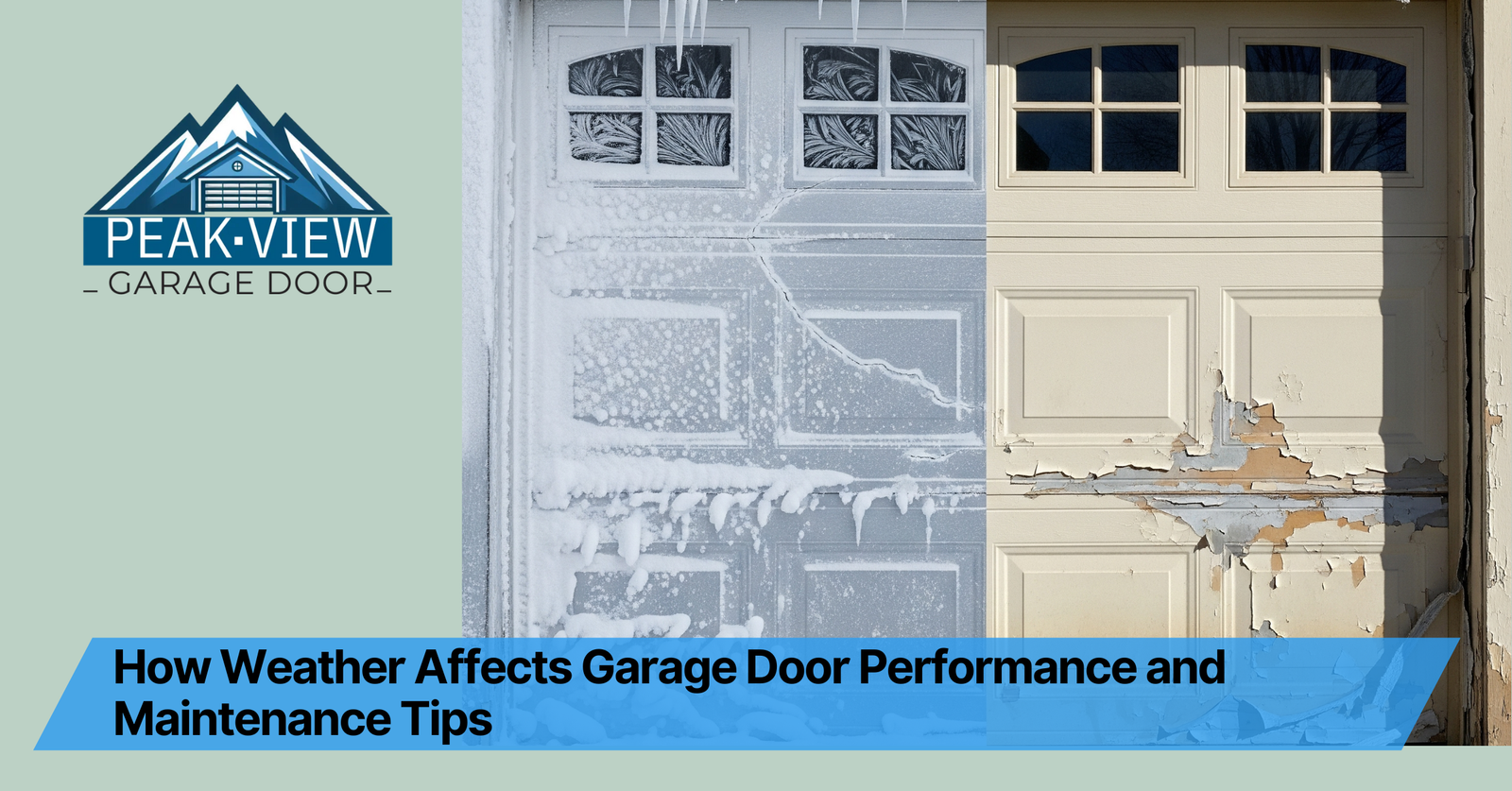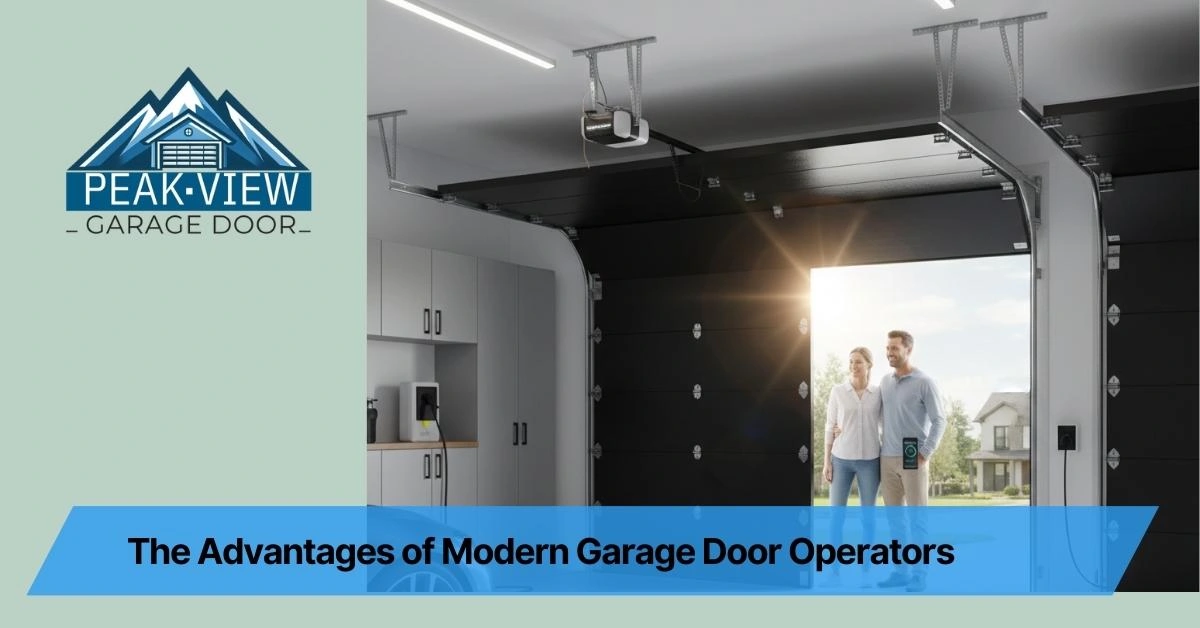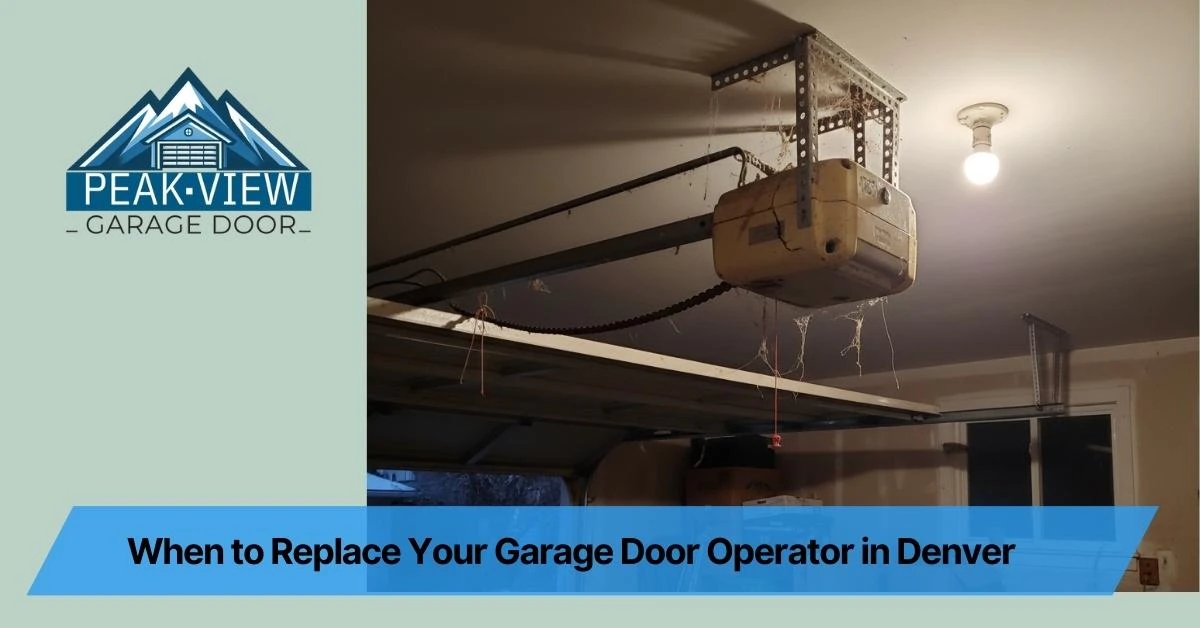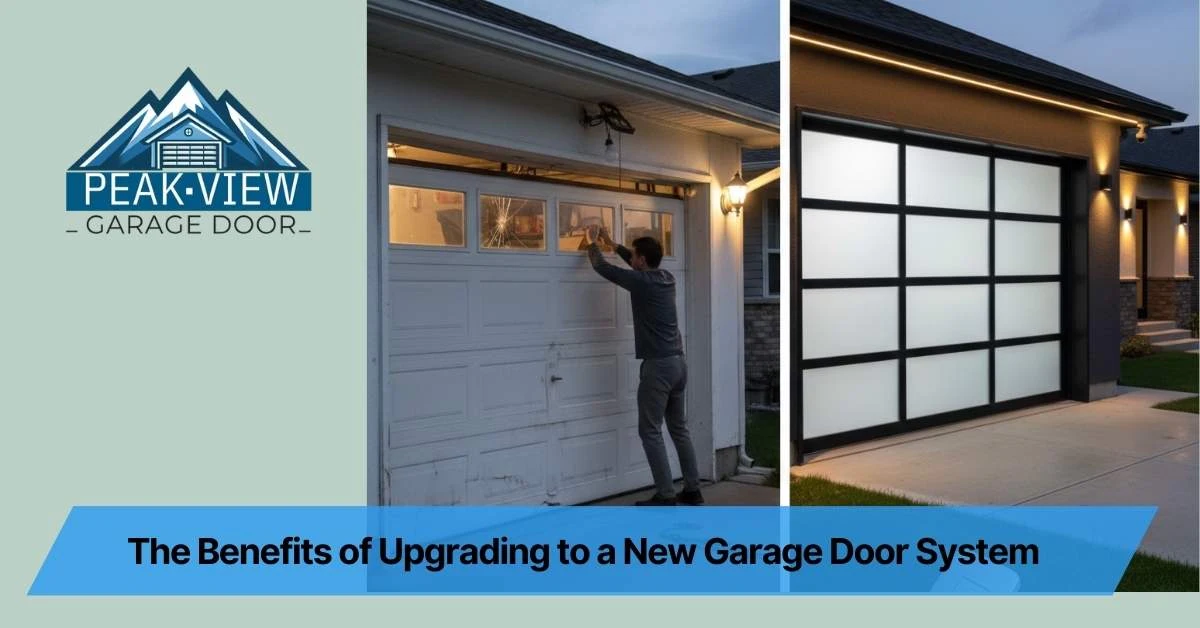Garage doors are one of the most exposed moving parts of your home. They endure extreme temperatures, heavy rain, humidity, and strong winds, all of which affect their functionality and durability. Ignoring weather impacts can lead to higher repair costs, decreased safety, and performance issues. Understanding how weather affects your garage door can help you take preventive maintenance steps to keep it running smoothly throughout the year.
Why Weatherproofing Your Garage Door Matters
Garage doors act as an entry point to your home and play a major role in insulation and security. Weather fluctuations can wear down both mechanical and aesthetic components. Proper weatherproofing and seasonal maintenance can:
- Extend the life of your garage door
- Improve energy efficiency
- Prevent costly repairs
- Maintain consistent operation
Effects of Different Weather Conditions on Garage Doors
1. Cold Weather and Freezing Temperatures
Cold climates can make metal parts brittle, causing springs and cables to snap. Ice buildup on tracks can also make the door hard to open or close.
Common issues include:
- Contracting materials that make the door noisy
- Frozen locks or hinges
- Sluggish motor performance
Maintenance Tip: Use lithium-based lubricants that don’t freeze and ensure your weather stripping is intact.
2. Hot Weather and Direct Sunlight
Heat can cause garage doors to warp or fade. Wooden doors may expand, and automatic openers may overheat.
Common issues include:
- Fading paint or protective coatings
- Expanded panels are causing misalignment
- An overheated opener motor reduces lifespan
Maintenance Tip: Apply UV-resistant paint or a sun-reflective coating to prevent damage.
3. Rain and Humidity
Moisture is especially damaging to wooden or unsealed metal doors. Rainwater can cause corrosion and wood rot. High humidity levels also increase the risk of mold growth.
Common issues include:
- Rust on hinges and rollers
- Swelling of wooden panels
- Electrical issues in automatic systems
Maintenance Tip: Inspect door seals and apply water-resistant coatings. Keep the garage well-ventilated.
4. Wind and Storms
High winds can cause misalignment, especially for large double garage doors. Windborne debris may damage panels or sensors.
Common issues include:
- Loose hardware and bent tracks
- Sensor malfunctions
- Dents and scratches
Maintenance Tip: Install bracing systems in hurricane-prone areas and keep the door free of obstructions.
Seasonal Garage Door Maintenance Tips
Staying ahead of weather-related wear and tear is the best way to protect your garage door investment.
Spring Maintenance
- Clean tracks and lubricate moving parts
- Check weather stripping and replace if cracked
- Test auto-reverse and sensor alignment
Summer Maintenance
- Inspect for heat-related warping or paint damage
- Clean and ventilate the garage space
- Ensure the motor isn’t overheating
Fall Maintenance
- Clear out leaves and debris from the tracks
- Apply silicone-based lubricant to prevent winter freeze
- Inspect the opener battery and sensor covers
Winter Maintenance
- Remove snow and ice buildup from the base and sensors
- Test insulation and seal gaps
- Keep locks and hinges rust-free with low-temp lubricants
Warning Signs of Weather-Related Garage Door Damage
Knowing when to call in a professional can prevent minor issues from becoming major expenses. Be on the lookout for:
- Unusual noises like grinding or squeaking
- Slow or jerky movement when opening/closing
- Drafts or visible gaps in the door seal
- Water intrusion during rainstorms
DIY vs. Professional Garage Door Maintenance
Basic tasks like lubrication, visual inspection, and cleaning can be handled by homeowners. However, more complex issues, especially related to the motor, springs, or alignment, should always be left to a trained garage door technician.
Call a pro if you notice:
- Broken or sagging springs
- The garage door is off its tracks
- A burnt smell from the motor
- Electrical issues with the opener
Conclusion: Stay Ahead of the Weather
Each season brings its own challenges for your garage door. The key to optimal performance is staying proactive with inspections, weatherproofing, and maintenance. Investing a little time each season will save you from expensive repairs and extend your garage door’s lifespan.
Whether it’s blazing summer sun or icy winter winds, weatherproofing ensures that your garage door operates safely and efficiently all year round.






